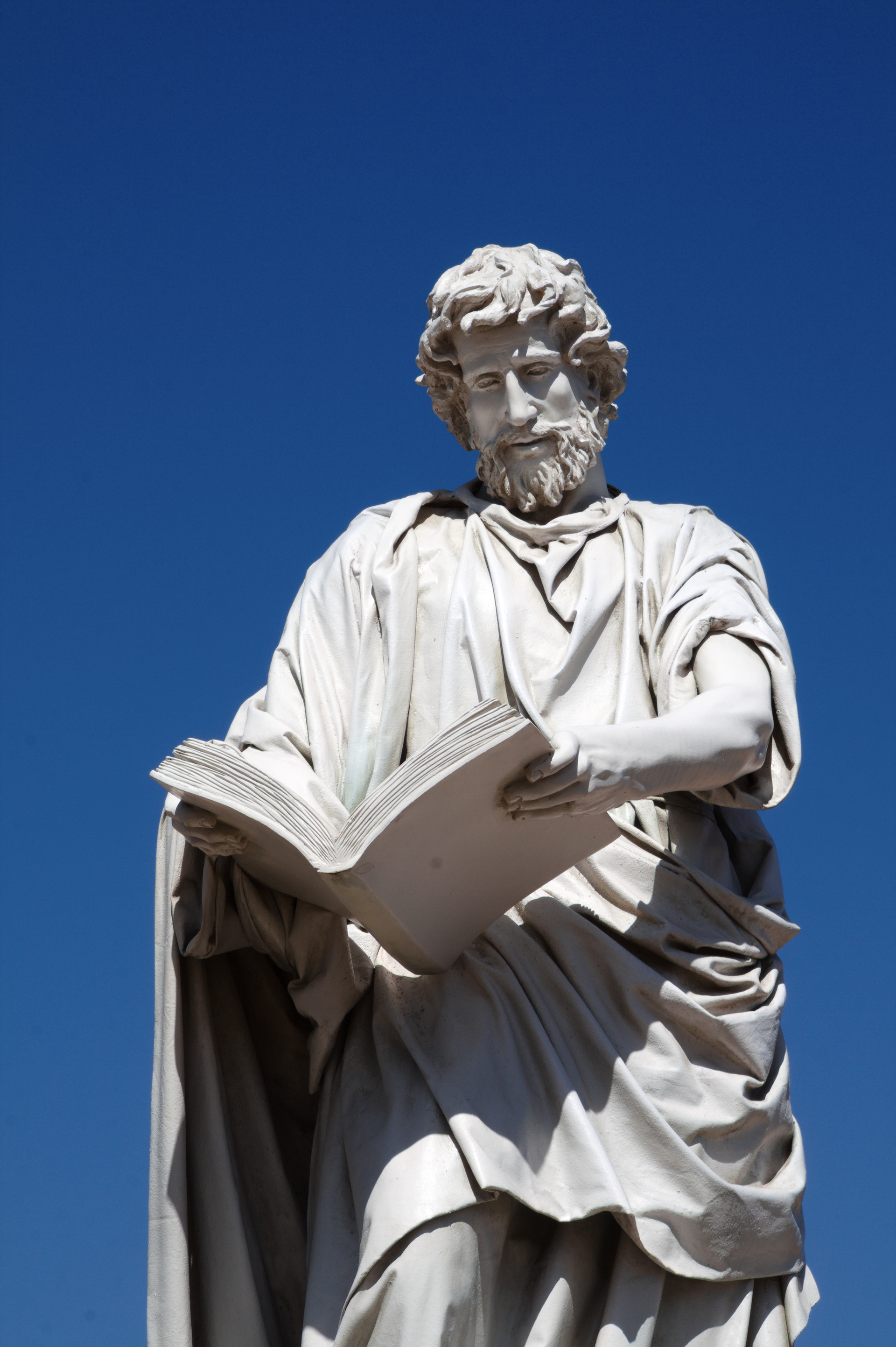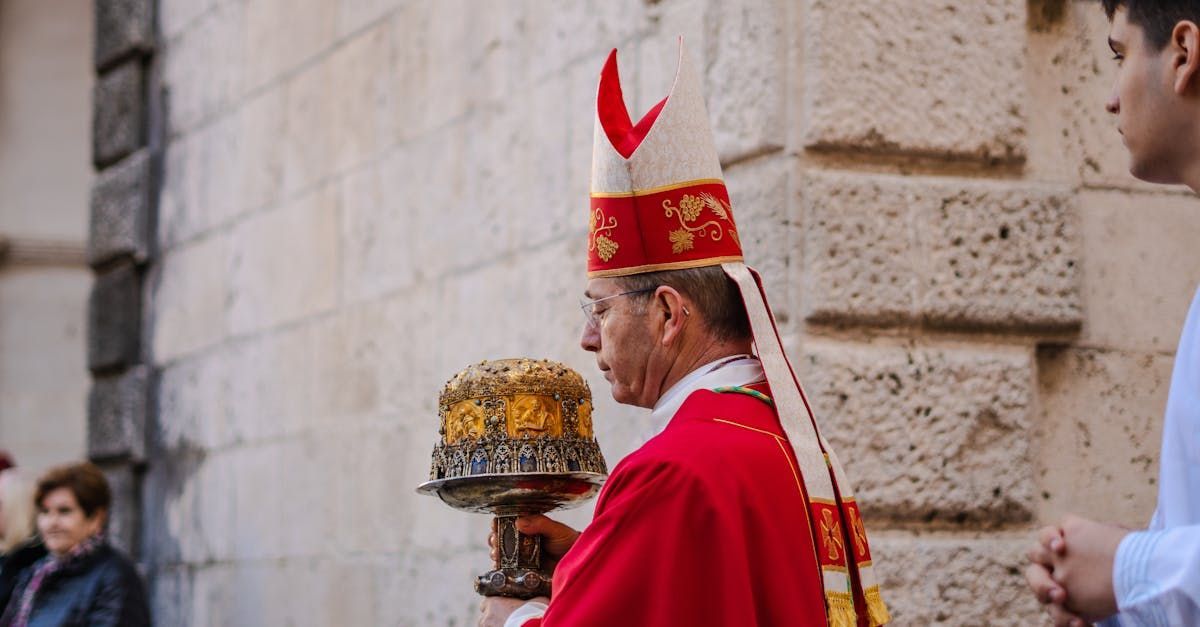¿Donde está Satanás hoy?
Como en la sinagoga de Capernaum, ¿está Satanás entre nuestra congregación?

Nuestro Evangelio de hoy proviene del comienzo del Evangelio de San Lucas. Es temprano en el ministerio público de Nuestro Señor. Él y sus discípulos están en Cafarnaúm. Es sábado y entran en la sinagoga. El rabino invita a Cristo a enseñar al pueblo. Mientras enseña, un hombre endemoniado habla e identifica a Nuestro Señor como el Hijo de Dios. Nuestro Señor expulsa al demonio para silenciarlo. Ahora bien, normalmente nos concentramos mucho en el demonio y el exorcismo. Es una historia bastante fantástica junto con sus milagros, curaciones y enseñanzas. Sin embargo, cuando nos centramos demasiado en el exorcismo, perdemos algunos puntos sutiles y importantes.
Primero, es sábado y Nuestro Señor va a orar a la sinagoga con sus discípulos. Este aspecto es crucial. Muchos han afirmado que Jesús es un reformador radical que vino a destruir el viejo orden y crear un nuevo orden. Sin embargo, todos los evangelios nos muestran que Cristo es obediente y fiel por completo a la antigua ley judía. Incluso los Hechos de los Apóstoles nos cuentan que los discípulos durante todo el día iban a la sinagoga a orar. Era parte de la práctica judía, como lo es hoy, detenerse varias veces al día para rezar ciertos Salmos. Incluso hoy, a través de la Liturgia de las Horas, muchos en la Iglesia se detienen para recitar los Salmos, leer lecturas y ofrecer oraciones. Los sacerdotes y religiosos deben hacer esto cinco veces al día. Sin embargo, muchos laicos también llevan voluntariamente esta forma de oración a sus propias vidas para entrar en la oración de la Iglesia que santifica el tiempo.
En segundo lugar, nuestro Evangelio plantea la cuestión de la autoridad de Nuestro Señor. Obviamente, la noticia de sus enseñanzas y hechos se ha extendido desde Nazaret y el Jordán hasta Cafarnaúm. Sería por esto que el rabino local en la sinagoga invitaría a Cristo a ser un maestro invitado que animara el culto de la comunidad. En nuestra primera lectura del libro del Éxodo, Moisés dice que Dios levantará en el futuro un profeta como él. Pero cuando Cristo viene y comienza su ministerio, Juan el Bautista dice que Cristo es mayor que un profeta. Dice esto porque los profetas escuchan la palabra de Dios y la repiten. Cristo, sin embargo, es la Palabra de Dios. Dios se revela a sí mismo en la segunda persona de la Trinidad que, a través de la encarnación, entra en el tiempo. Y aquí hay una ventana al profundo significado de este misterio. Cada palabra que Cristo pronunció desde su infancia hasta su Ascensión, ya sea que hayan sido registradas o no, son palabras dichas por el bien de nuestra salvación. Aunque en ese momento no comprendieron la importancia de quién era Jesús, reconocieron su autoridad y desearon escuchar sus enseñanzas. No tenemos excusa para ignorar los evangelios que tienen registradas sus palabras. Sabemos quién es Cristo y la importancia de sus enseñanzas como camino a la salvación, camino al cielo. Sería una tontería por nuestra parte no detenernos diariamente en el Evangelio.
Sin embargo, en medio de la asamblea hay alguien que sabe quién es Cristo. Se trata de un demonio que ha poseído a un hombre que asiste a los rezos de la sinagoga. Pero este demonio se opone a la autoridad de Cristo, por eso clama contra Cristo. El hecho de que haya un hombre poseído no debería sorprendernos. El diablo y sus secuaces existen y afligen a la humanidad. Sin embargo, observe la escena. Es un hombre poseído orando con la comunidad durante el servicio del sábado. No está atormentado ni afligido de una manera que la comunidad pueda ver. No se pelea, no habla en lenguas, no aterroriza a otros ni trepa por las paredes. A todos los demás les parece normal. Esta es la conclusión de esta escena. El mal está entre nosotros de maneras ocultas y sin abordar.
Aunque la posesión es muy rara, el diablo nos aflige de muchas maneras. Él nos debilita para ceder a la tentación. Quiere que pensemos que somos buena gente. Pero nos aflige de maneras que nos impiden desear algo mejor que el "bien", que es el deseo de perfección y santidad. Y Dios no permita que causemos escándalo por la hipocresía. Esto sucede cuando adoramos a Dios con nuestros labios el domingo y luego nos alejamos de la iglesia y cometemos malas acciones en nuestro corazón. No lo hemos adorado con nuestro corazón. Nuestros hijos nos escuchan cantar y orar el domingo, pero el lunes por la noche les gritamos y reprendemos. Damos apoyo monetario a la iglesia y luego engañamos a nuestros empleados. Oramos por la gracia de Dios en nuestras vidas para superar todos los obstáculos que nos impiden vivir de acuerdo con su santa voluntad, y volvemos a vivir una relación doméstica fuera del sacramento del santo matrimonio. Oramos, perdónanos nuestras ofensas como nosotros perdonamos a los que nos han ofendido, y luego gritamos y gritamos a alguien que nos corta el paso en la carretera. Profesamos ser cristianos cuando recitamos el Credo de Nicea y recibimos la Sagrada Comunión, pero durante la semana nadie ve ninguna diferencia en nuestra vida diaria entre nosotros y un ateo. Claro, podrían llamarnos personas decentes o buenas, pero no damos ningún fruto real para el reino de los cielos.
Con todo ese pecado, debilidad y fracaso, Satanás no necesita posesión en nuestros días modernos. No mentiré, la posesión existe. Pero es muy raro. Cuando alguien viene a la Iglesia e informa que alguien en su vida está poseído, la Iglesia busca cualquier otro remedio posible además del exorcismo. La persona debe estar orando diariamente. Deben confesarse regularmente si no lo hacen ya. Necesitan recibir el Santísimo Sacramento con frecuencia y devoción. Si les falta alguno de los sacramentos de iniciación, deben estar preparados para recibirlos. Si viven como si estuvieran casados pero no es un matrimonio sacramental, deben separarse o contraer matrimonio. Los sacramentos y la oración diaria son más eficaces que cualquier exorcismo. El noventa y nueve por ciento de las veces, cuando la vida de la persona se reorienta simplemente a vivir fielmente los mandamientos de Dios y una vida católica, la influencia demoníaca sobrenatural desaparece por sí sola. Todo exorcista diocesano oficial te dirá esto.
C.S. Lewis tiene un libro fascinante llamado "Cartas del diablo a su sobrino". En la obra, el tío Escrutopo es un demonio mayor que está entrenando y guiando a su sobrino, quien es novato en la tentación e influye en la vida de los hombres. Cada capítulo es una carta de entrenamiento para su sobrino. En una carta, Escrutopo dice algo muy conmovedor. Le dice a su sobrino que necesita distraer a la persona a la que está tentando de manera sutil para que no se dé cuenta de que está siendo influenciado por un demonio. Debería hacer que se concentrara en todo lo demás menos en sí mismo. Necesita hacerle pensar en política, en una vida mejor, en los males de la vida familiar, en su salud, en su seguridad financiera, en las deficiencias de los demás: cualquier cosa que le distraiga de verse a sí mismo verdaderamente tal como es.
Eso, hermanos míos, es mucho más peligroso que la posesión. Cuando gastamos nuestra energía y tiempo tan concentrados en todo lo que nos rodea, el diablo no necesita hacer más trabajo en nuestra vida. Nos tiene justo donde quiere que estemos. Nos hace pensar que somos lo suficientemente buenos. Pero Cristo no quiere gente buena. Quiere santos. Y nadie puede ayudarnos a convertirnos en santos excepto nosotros mismos. Pero requiere que nos miremos a nosotros mismos como realmente somos, como nos ve Cristo. Y hacer los cambios y sacrificios necesarios en nuestra vida para ser cada día más fieles a la vida que Cristo nos llama. No puedo santificar a todos los que me rodean, pero puedo ayudar a Cristo a santificarme a mí.
Pastor's Ponderings












